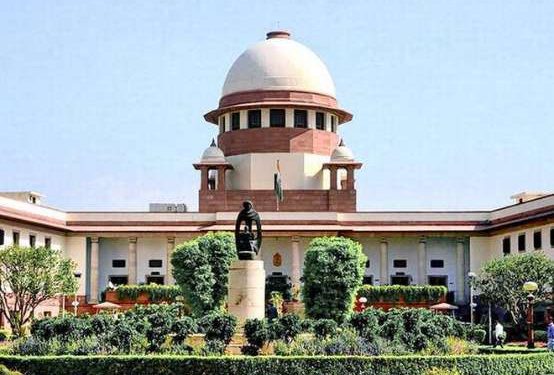New Delhi: The Supreme Court Wednesday raised questions over the government’s decision ordering mandatory seeding of mobile numbers with Aadhaar and said its earlier order on mandatory authentication of the users was used as a “tool”.
A five-judge Constitution bench headed by Chief Justice Dipak Misra, hearing a clutch of petitions challenging Aadhaar and its enabling 2016 law, said its order on a PIL filed by ‘Lokniti Foundation’ had said that mobile users needed to be verified in the interest of national security.
“In fact there was no such direction from the Supreme Court, but you took it and used it as tool to make Aadhaar mandatory for mobile users,” the bench, also comprising Justices A K Sikri, A M Khanwilkar, D Y Chandrachud and Ashok Bhushan, said.
Senior advocate Rakesh Dwivedi, appearing for the Unique Identification Authority of India (UIDAI), said the Department of Telecommunication (DoT) notification talked about re-verification of mobile numbers by using e-KYC process and the Telegraph Act gave “exclusive power to central government to decide license conditions” of service providers.
“How can you (DoT) impose condition on service recipients for seeding Aadhaar with mobile phones,” the bench said, adding that license agreements were between the government and the service providers.
Dwivedi said the direction to seed mobile with Aadhaar was taken in pursuance of TRAI’s recommendation. Besides, the government was entitled and had legitimate state interest to ensure that a sim card is given to only those who applied, he said, seeking to allay apprehensions that the State would will surveil the people 24×7.
“My submission is that the government had a legal basis to link Aadhaar with SIM by virtue of section 4 of the Telegraph Act and also, the measure is reasonable in the interest of national security,” the lawyer stressed.
Three Years On
24 February marks the third anniversary of Russia’s full-scale invasion of Ukraine. Kremlin’s strategy for a swift victory has faltered...
Read more





































